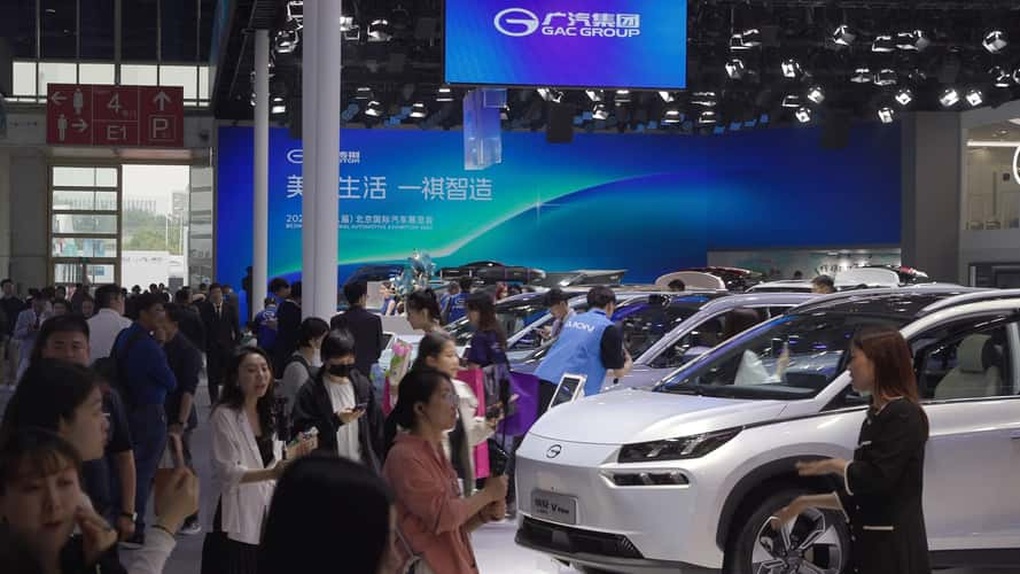
Officials from the Bureau of Industry and Security (BIS) under the US Department of Commerce on September 23 announced new proposed regulations. According to the proposals, vehicles with connectivity features related to China are believed to pose a risk to US national security and the privacy of its citizens' data.
The proposed regulations focus on vehicle connectivity systems and autonomous driving systems, both hardware and software. The US Department of Commerce is concerned that China could access and collect sensitive data and remotely control vehicles on US streets.

Chinese automakers are seen as leading the race in electric and software-driven vehicles (Illustrative image: InsideEVs).
If the proposal is approved, the software ban will take effect for 2027 model vehicles and the hardware ban will take effect for vehicles from the 2030 model year, or from January 1, 2029 for vehicles not categorized by year.
This could cause significant losses for Chinese car manufacturers seeking to enter the US market, even if they establish manufacturing plants in Mexico or even in the US.
The proposed regulations include software that supports autonomous driving (excluding simpler driver assistance features) and the ability for vehicles to connect to satellite, mobile, and Wi-Fi networks. Hardware focuses on vehicle connectivity systems, but only on components with connectivity capabilities.
The proposed regulations define autonomous driving systems as those rated from Level 3 to Level 5 according to automotive industry standards.
Level 1 and 2 systems, including cruise control and lane keeping that always require driver supervision, will not be restricted by these regulations.
The regulations also target car hardware and software from Russia, also for national security reasons, although Russia is not a technology and automation powerhouse like China.
US Commerce Department officials began investigating the risks of connected vehicles from China and car technology in late February.
This proposal is the latest move by the US government of President Joe Biden to prevent Chinese cars, specifically electric vehicles, from entering the US market. Earlier this year, the US announced a 100% tariff on electric vehicles manufactured in China, leading to Volvo postponing the introduction of the EX30 electric vehicle in the US, waiting until it can be produced in Europe.
It seems that these tariffs are also the reason Chinese automakers such as BYD, Nio, XPeng, and Geely's other brands have had to delay their plans to enter the US, while continuing to increase market share in Europe and Latin America.
In theory, if they build factories in Mexico with the goal of exporting to the US, Chinese automakers could avoid tariffs. But tightening regulations on Chinese software and hardware could make their journey to conquer the US market much more difficult, if not impossible.
Therefore, while the regulations proposed by the US Department of Commerce emphasize national security concerns, they may also benefit companies like General Motors, helping them avoid direct competition with Chinese rivals like BYD.
However, if the proposed regulations are approved, they could also affect other car manufacturers because nowadays, many companies use Chinese hardware and software, such as Volvo or Polestar (owned by China's Geely Group), as well as Western car companies collaborating on new technologies with Chinese partners, even car companies like GM and Ford themselves.
According to Bloomberg, US Commerce Department officials are expected to finalize these regulations in January 2025, after receiving public feedback for 30 days.
Hãy là người đầu tiên bình luận!
Bình luận: